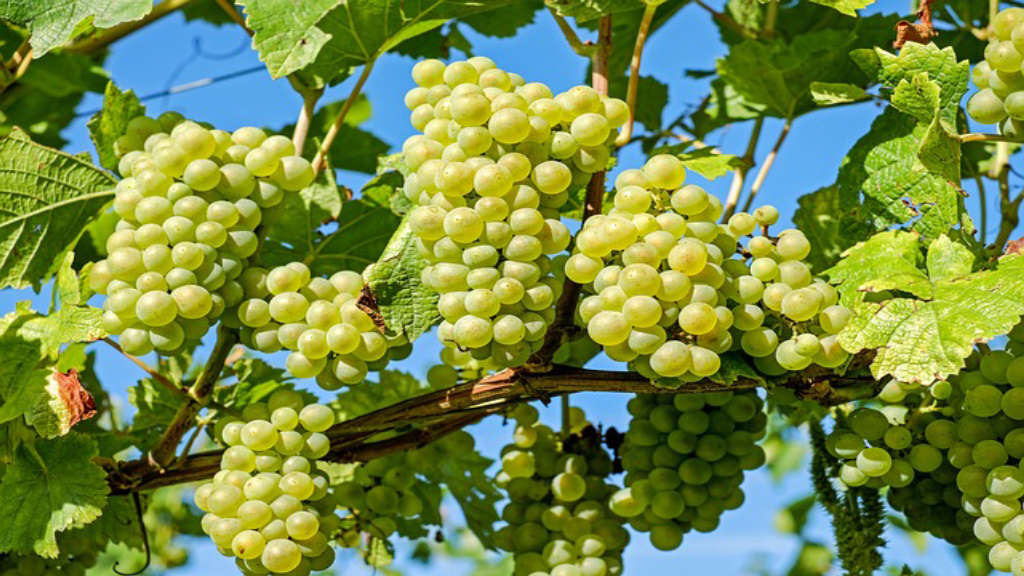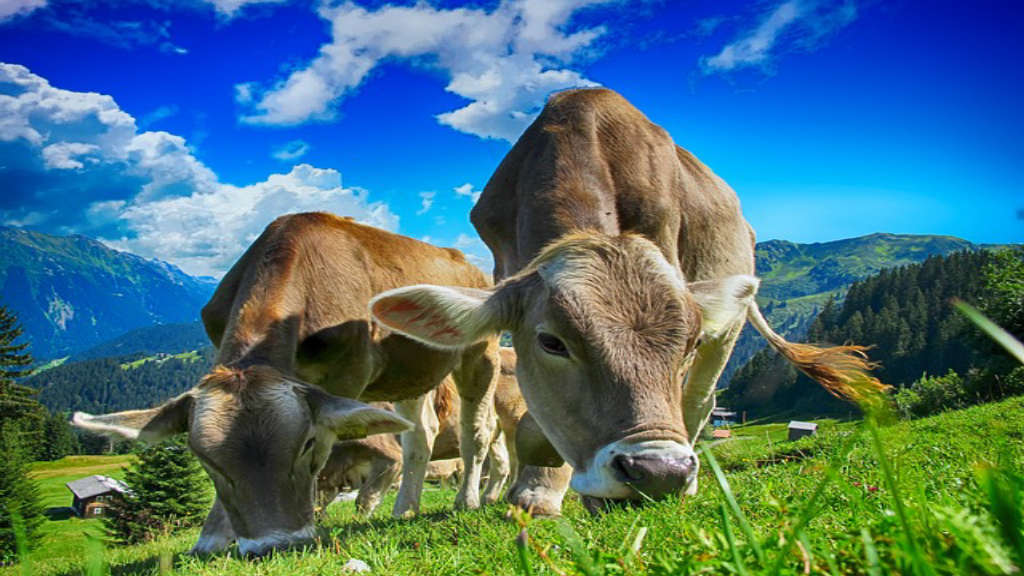The world of agriculture is undergoing a remarkable transformation, thanks to advancements in technology. Innovations in farming practices are becoming essential to meet the growing demand for food. Among these advancements, precision farming technology stands out as a game changer. This technology enhances efficiency and sustainability in food production, allowing farmers to make more informed decisions. As we delve into this topic, we’ll explore how these cutting-edge techniques are reshaping our agricultural landscape.
Main Points
- The meaning and significance of precision farming technology.
- How data analytics and sensors improve agricultural practices.
- The role of sustainability in modern food production.
- Case studies showcasing successful implementations of precision farming.

Innovative Tools and Techniques: The Role of GPS and Data Analytics in Precision Agriculture
In the rapidly evolving field of agriculture, the integration of GPS technology and data analytics marks a transformative shift towards precision agriculture. These innovative tools facilitate farmers to optimize their practices, ensuring greater efficiency and sustainability in their operations. However, one must consider how the adoption of such technologies can sometimes lead to a labyrinth of complexities that requires careful navigation.
The Significance of GPS Technology
First and foremost, GPS is central to the evolution of farming techniques in modern practices. By providing accurate location data, GPS enables farmers to:
- Map Fields: Mapping allows for a better understanding of land variations.
- Monitor Crop Health: Regular tracking provides insights into growth patterns and health issues.
- Enhance Equipment Navigation: Precision in field navigation can reduce overlap and miss-planting areas.
Yet, the data generated can often lead to confusion regarding the next steps. For instance, while it might be clear where to plant, it may not be straightforward to decide what specific interventions are necessary based on the data insights provided.
The Influence of Data Analytics
Next, the role of data analytics in agriculture drives the concept of precision agriculture forward. Through analyzing vast amounts of data collected via various sources such as weather patterns, soil conditions, and crop yields, farmers can make informed decisions. These analytics include:
- Yield Prediction Models: Predicting future yields based on historical data and current conditions.
- Resource Allocation: Determining the optimal resource needs of different areas to minimize waste.
- Risk Assessment: Evaluating potential threats to crops and devising proactive measures.
This data, while incredibly useful, can create a dilemma. An excess of information may leave farmers torn between multiple strategies, often complicating the decision-making process rather than simplifying it. Farmers must sift through their findings, prioritize what is relevant, and resist the urge to overanalyze every variable in play.
Balancing Between Technology and Tradition
Moreover, striking a balance between traditional agricultural knowledge and modern innovative tools is essential. While GPS and data analytics provide unprecedented insights, the experience and intuition of seasoned farmers are invaluable. Each approach offers distinct advantages, which can be harmonized for optimum results.
In conclusion, as precision agriculture continues to advance using GPS technology and data analytics, farmers stand at a pivotal crossroads. They have the opportunity to enhance productivity and sustainability in ways once deemed impossible. However, they must navigate through the complexities these innovations sometimes introduce. Thus, understanding the symbiotic relationship between technology and traditional farming practices will be crucial in harnessing the full potential of these innovative tools and techniques.

Sustainable Farming Practices: How Precision Technology Minimizes Environmental Impact and Enhances Crop Yields
In the modern agricultural landscape, balancing productivity with environmental stewardship has become paramount. As the global population grows, farmers face the dual challenge of enhancing crop yields while minimizing the environmental impact of their practices. This is where sustainable farming practices come into play, especially through the integration of precision technology.
The Role of Precision Technology
Precision technology refers to the utilization of advanced tools and systems, such as GPS, drones, and sensor technologies, to optimize farming operations. These technologies allow farmers to monitor crop health and soil conditions in real-time, thereby enabling targeted interventions. This targeted approach not only increases crop yields but also reduces the unnecessary use of resources like water and fertilizers.
For instance, precision irrigation systems can deliver water exactly where it is needed, minimizing waste and improving water efficiency. Similarly, variable-rate application of fertilizers ensures that only the required amount is applied to each part of the field. This not only promotes healthier plants but also reduces the risk of runoff, which can harm local ecosystems.
Minimizing Environmental Impact
Employing sustainable farming practices through precision technology significantly diminishes the environmental footprint of agriculture. Traditional farming methods often lead to soil degradation, nutrient depletion, and negative impacts on biodiversity. However, precision agriculture focuses on enhancing soil health and promoting biodiversity through careful monitoring and management.
The enhanced data collection capabilities of precision farming allow farmers to identify problem areas in their fields. By addressing these issues promptly, farmers can avoid the overuse of chemicals that can further degrade the land. Consequently, this leads to healthier ecosystems and promotes a more sustainable agricultural practice overall.
Benefits Beyond Yield
While the primary aim might be to increase crop yields, the benefits of integrating precision technology extend beyond mere productivity. Sustainability in agriculture also fosters social equity and economic viability. Farmers equipped with these technologies can make informed decisions that not only benefit their crops but also their communities.
In addition, sustainable farming practices have the potential to attract consumers who are increasingly interested in the origins of their food. Products grown with an emphasis on sustainability are often perceived as higher quality, opening new market opportunities for farmers.
Challenges and Future Perspectives
Despite the clear advantages of precision technology in sustainable farming, challenges remain. The initial investment for high-tech equipment can be daunting for smaller farms. Additionally, there might be a learning curve associated with adopting new technologies. However, as technology becomes more affordable and accessible, the hope is that more farmers will embrace these practices.
In summary, the intersection of sustainable farming practices and precision technology offers a promising pathway to meet the needs of a growing population without further compromising our environment. Through careful management and innovative solutions, farmers can enhance yields while stewarding the land for future generations. By fostering a culture that prioritizes both productivity and sustainability, we can ensure a healthier planet moving forward.
| Key Aspects | Benefits |
|---|---|
| Precision Irrigation | Water conservation and efficiency |
| Variable Rate Technology | Reduced chemical use and costs |
| Soil Monitoring | Improved soil health and productivity |
This content highlights the importance of sustainable farming practices while integrating precision technology, all while adhering to the requested structure and style.
Conclusion
In conclusion, precision farming technology represents a remarkable shift in how we approach agriculture today. This innovative approach not only enhances crop yield but also promotes sustainable practices, making farming more efficient. While some may still question the necessity of such advancements, it’s clear that these technologies provide invaluable insights into soil health and crop performance. Farmers who embrace precision farming can make informed decisions that lead to better resource management. Ultimately, adopting these advancements will define the future of agriculture, ensuring that we can feed a growing population sustainably.
Frequently Asked Questions
What is precision farming technology?
Precision farming technology refers to the use of advanced tools and techniques to monitor and manage agricultural practices, aiming to optimize crop yields and resource use by analyzing data on soil conditions, weather patterns, and crop health.
How does precision farming benefit farmers?
Precision farming helps farmers increase efficiency and productivity by allowing them to make data-driven decisions. This can lead to reduced input costs, improved crop quality, minimized environmental impact, and higher overall yields.
What types of technology are used in precision farming?
Precision farming utilizes a variety of technologies, including GPS mapping, drones for aerial imaging, soil sensors, satellite imaging, and data analytics software, all designed to enhance farming practices and decision-making.